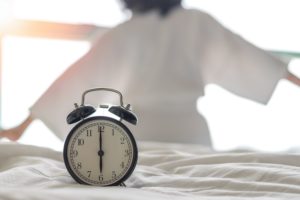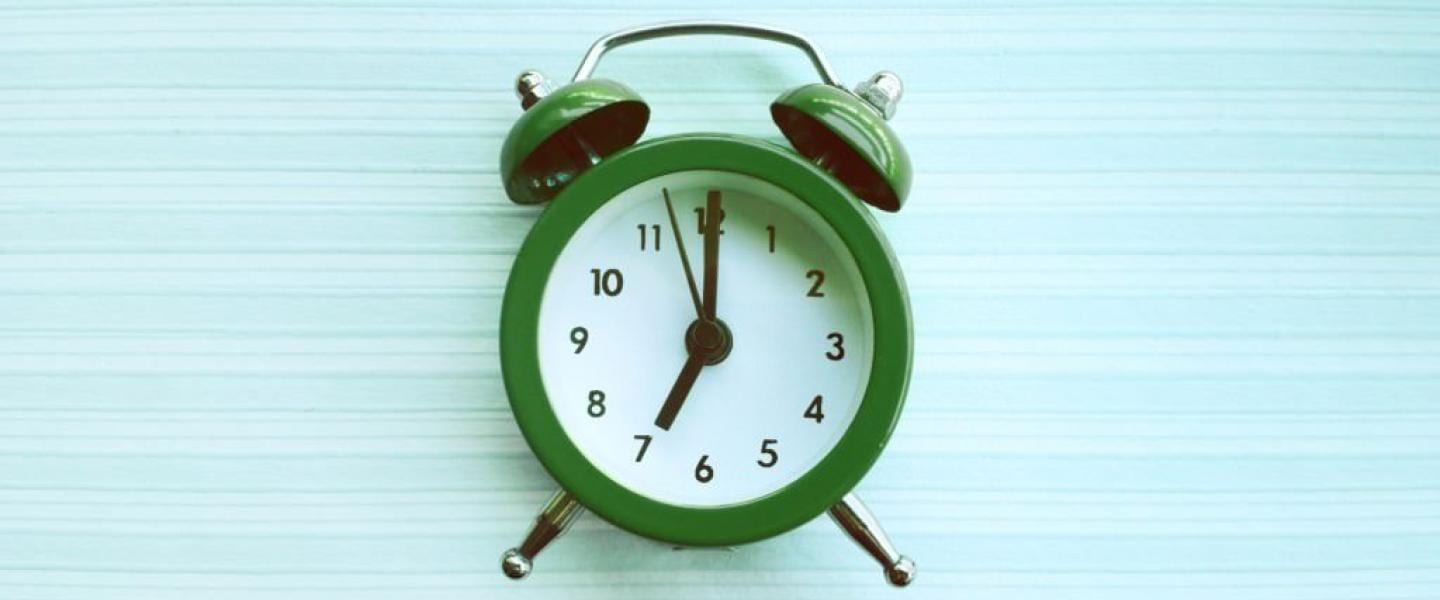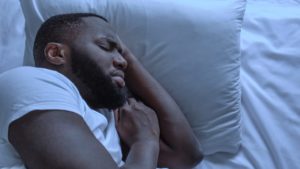Sleep Debt: The Hidden Cost of Insufficient Rest
- Sleep debt, or sleep deficit, results from getting less than seven hours of sleep each night.
- Sleep debt can quickly add up from common activities like working, commuting, socializing, relaxing, and watching TV.
- Napping or sleeping in on weekends can help you catch up on sleep, but it can take several days to recover from the negative effects of sleep loss.
- Avoid a sleep deficit by improving your sleep hygiene and prioritizing sleep.
Sleep is an essential part of overall health, and getting enough restful sleep on a regular basis offers a plethora of benefits. Quality sleep helps boost energy levels and immune function, and supports cognitive processes like memory consolidation. Not getting enough sleep can have serious consequences and interfere with work, school, and driving. This is a common problem for adults. According to data from 160,000 Sleep Foundation profiles, more than two-thirds of respondents have been experiencing poor sleep for a period of “months to years.”
Sleep debt, also called a sleep deficit, is the difference between the amount of sleep someone needs and the amount they actually get. For example, if your body needs eight hours of sleep per night but you only get six, you have accumulated two hours of sleep debt. However, through healthy sleep practices and lifestyle accommodations, you can recover from sleep debt and regain the benefits of quality rest.
Is Your Sleep Debt a Health Risk?
A variety of issues can cause degrade your sleep quality. Answer three questions to understand if it’s a concern you should worry about.
What Are the Effects of Sleep Debt?
For many people, getting enough sleep can be a challenge. More than one-third of Americans get less than seven hours of sleep every night. Losing sleep is even more common in people who work in the medical field or other jobs that require shift work.
Being in a prolonged state of sleep debt or sleep deprivation on a regular basis increases the risk of diabetes, hypertension, heart disease, and stroke. Sleep deprivation is also linked to reduced immune function, metabolic dysregulation and weight gain, and a greater risk of falls and accidents. Prolonged sleep deprivation also affects memory and cognitive functions.
Since sleep debt is cumulative, going to sleep 30 or 60 minutes later than usual for a few days can quickly add up. The most common activities that cause Americans to miss sleep are work hours, commuting, socializing, relaxing, and watching TV.
Those with accumulated sleep debt may not always experience increased levels of tiredness or fatigue. Research has demonstrated that people can cognitively adapt to chronic sleep restriction without feeling particularly sleepy, even though their body is showing significant declines in physical and mental performance.
How to Avoid Sleep Debt
Learning how much sleep your body needs and prioritizing sleep is the best way to avoid the accumulation of sleep debt and its health consequences. While the amount of sleep each person needs can vary, research shows that most adults need at least seven hours of sleep per night. Children and teenagers need even more sleep to support their bodies as they grow and develop.
It may seem like sacrificing a little sleep to study or work a few more hours helps you get more done, but getting sufficient sleep improves cognitive performance and allows you to be more efficient during the day. There are a number of ways to improve your sleep hygiene and reduce the chances of accumulating sleep debt.
- Keep a set sleep schedule: Maintaining a set sleep schedule allows you to prioritize sleep and make sure you are getting sufficient rest. If you need to change your sleep schedule, do it slowly by adjusting it in increments of 15 to 30 minutes.
- Develop a nightly routine: Having a nightly routine allows your body to relax and prepare for quality sleep. Set an alarm for 30 minutes to an hour before bed to remind you to dim the lights, turn off electronics, and find a relaxing activity.
- Consider daytime habits: If you are chronically sleep deprived, rethink any daytime activities that may be contributing to sleep issues. Make sure you are getting enough sunlight and exercise during the day, not drinking caffeine too close to bedtime, and restricting activities in your bed to just sleep and sex. Limiting screen time prior to sleeping may also help reduce sleep issues.
- Improve the bedroom environment: Optimize your bedroom environment for sleep. Keep the temperature comfortable for sleeping, block out any lights or noises that might keep you awake, and consider replacing your mattress, pillow, or sheets if they are old or uncomfortable.

Recovering From Sleep Debt
Sometimes losing sleep is unavoidable. Whether sleep deprivation is due to a demanding work schedule or a late night with family or friends, it is important to have a plan for recovering from lost sleep.
Taking a nap is often the first remedy that comes to mind if you are sleep deprived. A brief, 10 to 20 minute nap may help you feel more refreshed during the day. A mid-afternoon nap can increase working memory, learning, and mental acuity for a few hours.
Sleeping in on the weekends to catch up on sleep is another common approach. Unfortunately, it is unclear if sleeping in actually compensates for sleep debt or if it simply helps the body to return to its normal sleep patterns. One study found that sleeping in on weekends does not reverse the metabolic dysregulation and potential weight gain associated with regular sleep loss.
While both napping and sleeping in on weekends may help ease symptoms like fatigue or daytime sleepiness, they are often not enough to adequately recover from sleep debt. The accumulating effects of sleep loss is a debt that takes longer to repay. Research has shown that it can take up to four days to recover from one hour of lost sleep and up to nine days to completely eliminate sleep debt . A full recovery from sleep debt returns our body to its baseline, reducing the negative effects associated with sleep loss.
A full recovery from sleep restriction can take even more time, according to a study that examined the recovery process of a prolonged period of restricted sleep. When given a cognitive functioning test, participants displayed worse performance during the 10-day sleep restriction period, then showed a gradual yet incomplete recovery in the final phase of the study, when participants could sleep as often as they liked. Results showed that even a full week of opportunity to recover after the 10-night span of restricted sleep was not enough to restore optimal brain function.
Tips for Catching Up on Sleep
These techniques can be useful to properly catch up on sleep and eliminate sleep debt.
- Stay consistent: Build time into your schedule for sleep and try to set your bedtime and morning alarm at the same times every day, even on weekends. Maintaining a consistent sleep schedule is important for resyncing circadian rhythms.
- Keep a diary: A sleep diary can help you track your sleep habits and identify patterns or practices that are affecting your sleep.
- Try an afternoon nap: While napping is not a replacement for lost sleep, it can help you feel more rested during the day. Naps may be particularly helpful for shift workers or people who have trouble maintaining a consistent sleep schedule. Even a short power nap can refresh the body and brain.
- Give it time: Remember that it can take days to recover from a sleep debt. Increase your sleep time slowly, by 15 to 30 minutes at a time, until you reach the optimal amount of sleep for your body. Focus on improving your sleep hygiene and consistently getting enough sleep, and your body will do the rest.
- Talk to your doctor: If sleep debt is interfering with your daytime activities or if you are struggling to recover, it is important to speak with your doctor. A doctor can discuss the possibility of an underlying sleep disorder, like insomnia, and offer personalized tips for improving your sleep.

Still have questions? Ask our community!
Join our Sleep Care Community — a trusted hub of product specialists, sleep health professionals, and people just like you. Whether you’re searching for the perfect mattress or need expert sleep advice, we’ve got you covered. Get personalized guidance from the experts who know sleep best.
References
8 Sources
-
Liu, Y., Wheaton, A. G., Chapman, D. P., Cunningham, T. J., Lu, H., & Croft, J. B. (2016). Prevalence of healthy sleep duration among adults–United States, 2014. MMWR. Morbidity and mortality weekly report, 65(6), 137–141.
https://pubmed.ncbi.nlm.nih.gov/26890214/ -
Van Dongen, H. P., Maislin, G., Mullington, J. M., & Dinges, D. F. (2003). The cumulative cost of additional wakefulness: Dose-response effects on neurobehavioral functions and sleep physiology from chronic sleep restriction and total sleep deprivation. Sleep, 26(2), 117–126.
https://pubmed.ncbi.nlm.nih.gov/12683469/ -
Consensus Conference Panel, Watson, N. F., Badr, M. S., Belenky, G., Bliwise, D. L., Buxton, O. M., Buysse, D., Dinges, D. F., Gangwisch, J., Grandner, M. A., Kushida, C., Malhotra, R. K., Martin, J. L., Patel, S. R., Quan, S. F., Tasali, E., Non-Participating Observers, Twery, M., Croft, J. B., Maher, E., … Heald, J. L. (2015). Recommended amount of sleep for a healthy adult: A joint consensus statement of the American Academy of Sleep Medicine and Sleep Research Society. Journal of Clinical Sleep Medicine, 11(6), 591–592.
https://pubmed.ncbi.nlm.nih.gov/25979105/ -
Brooks, A., & Lack, L. (2006). A Brief Afternoon Nap Following Nocturnal Sleep Restriction: Which Nap Duration is Most Recuperative? Sleep, 29(6), 831–840.
https://pubmed.ncbi.nlm.nih.gov/16796222/ -
Åkerstedt, T., Ghilotti, F., Grotta, A., Zhao, H., Adami, H. O., Trolle-Lagerros, Y., & Bellocco, R. (2019). Sleep duration and mortality – Does weekend sleep matter? Journal of Sleep Research, 28(1), e12712.
https://pubmed.ncbi.nlm.nih.gov/29790200/ -
Depner, C. M., Melanson, E. L., Eckel, R. H., Snell-Bergeon, J. K., Perreault, L., Bergman, B. C., Higgins, J. A., Guerin, M. K., Stothard, E. R., Morton, S. J., & Wright, K. P., Jr (2019). Ad libitum weekend recovery sleep fails to prevent metabolic dysregulation during a repeating pattern of insufficient sleep and weekend recovery sleep. Current Biology, 29(6), 957–967.e4.
https://pubmed.ncbi.nlm.nih.gov/30827911/ -
Kitamura, S., Katayose, Y., Nakazaki, K., Motomura, Y., Oba, K., Katsunuma, R., Terasawa, Y., Enomoto, M., Moriguchi, Y., Hida, A., & Mishima, K. (2016). Estimating individual optimal sleep duration and potential sleep debt. Scientific reports, 6, 35812.
https://pubmed.ncbi.nlm.nih.gov/27775095/ -
Ochab, J. K., Szwed, J., Oleś, K., Bereś, A., Chialvo, D. R., Domagalik, A., Fąfrowicz, M., Ogińska, H., Gudowska-Nowak, E., Marek, T., & Nowak, M. A. (2021). Observing changes in human functioning during induced sleep deficiency and recovery periods. PLOS ONE, 16(9), e0255771.
https://journals.plos.org/plosone/article?id=10.1371/journal.pone.0255771















































